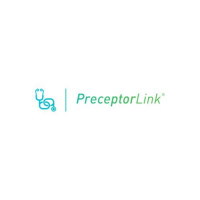Essential Guide for Preceptors of NP Students

Strong 8k brings an ultra-HD IPTV experience to your living room and your pocket.
Preceptorship plays a critical role in the education of nurse practitioner (NP) students, offering an essential bridge between classroom learning and clinical practice. The role of the preceptor is multifaceted and requires not only a deep understanding of clinical practice but also the ability to teach, mentor, and guide students through their professional development. Effective preceptorship ensures that NP students gain the practical knowledge, skills, and confidence necessary to provide high-quality patient care.
Role and Responsibilities of Preceptors for NP Students
Preceptors for NP students serve as primary mentors in the clinical environment. Their primary responsibility is to support the student in applying theoretical knowledge to practical, hands-on situations. This includes supervising clinical activities, evaluating performance, providing feedback, and fostering professional development. Preceptors are expected to guide NP students through assessments, diagnoses, treatment plans, and interactions with patients while ensuring that the student adheres to best practices and ethical standards in healthcare.
In addition to overseeing clinical activities, preceptors are responsible for creating a learning environment that encourages student engagement and critical thinking. This can be accomplished through open communication, reflection, and providing opportunities for NP students to ask questions and seek clarification on clinical tasks. Building a relationship based on trust, respect, and mutual collaboration is essential to the success of the preceptorship.
Key Characteristics of an Effective Preceptor for NP Students
An effective preceptor for NP students should possess several key qualities, including clinical expertise, teaching ability, and emotional intelligence. A preceptor's clinical expertise is essential in guiding students through complex patient care situations and providing accurate, evidence-based feedback. Teaching ability is equally important, as it enables preceptors to present information in a way that is understandable and accessible to students. Emotional intelligence, including empathy, patience, and active listening skills, ensures that students feel supported and valued during their learning process.
Moreover, flexibility and adaptability are vital traits for preceptors. Each student has unique learning styles, strengths, and areas for improvement. Preceptors must be able to adjust their teaching strategies to meet the individual needs of each student. By doing so, preceptors can help students maximize their learning potential and grow into competent, confident practitioners.
Strategies for Successful Preceptorship
Successful preceptorship involves several strategies that help NP students develop into competent healthcare professionals. These strategies include clear goal-setting, effective communication, and regular feedback.
Goal-Setting: Establishing clear, measurable goals for each student at the beginning of the preceptorship helps both the preceptor and the student understand what is expected. These goals should be specific to the student's learning needs and should evolve as the student progresses through the clinical experience. Clear goals help students focus on improving their skills in particular areas, such as patient assessment, differential diagnosis, and communication.
Effective Communication: Communication is key to a successful preceptorship. Preceptors should engage in frequent discussions with their students to assess their understanding, clarify doubts, and provide guidance. Open communication also allows students to express any concerns or challenges they may be facing. Preceptors should foster an environment where students feel comfortable sharing their thoughts, asking questions, and receiving constructive criticism.
Regular Feedback: Constructive feedback is crucial for NP students' development. Feedback should be specific, timely, and focused on both strengths and areas for improvement. Providing feedback after each patient encounter or clinical task helps students learn from their experiences. Preceptors should also encourage self-reflection in students, prompting them to evaluate their own performance and identify areas for growth.
Creating a Positive Learning Environment: A supportive and respectful learning environment is essential for fostering growth and learning. Preceptors should make an effort to provide emotional support, promote a positive attitude toward challenges, and celebrate students' successes. A positive environment helps students feel confident in their abilities and encourages them to take initiative in their learning.
Overcoming Challenges in Preceptorship
While preceptorship can be highly rewarding, it also presents unique challenges. One common challenge is managing time effectively, as preceptors must balance patient care with teaching responsibilities. Preceptors should prioritize tasks, delegate when appropriate, and ensure that students are given meaningful learning opportunities without compromising patient safety.
Another challenge is addressing varying levels of student competence. Some NP students may require more guidance and supervision, while others may need more autonomy. Preceptors should assess each student's readiness to take on more responsibility and adjust the level of supervision accordingly. This individualized approach ensures that students receive the support they need without feeling overwhelmed or under-challenged.
The Impact of Preceptorship on NP Students’ Professional Development
Preceptorship has a profound impact on the professional development of NP students. Through direct supervision and mentorship, students gain the confidence, competence, and clinical reasoning skills needed to become effective nurse practitioners. Preceptors help students develop critical thinking, problem-solving, and clinical decision-making abilities, which are essential in delivering high-quality care. The preceptorship also helps students integrate their academic learning into real-world practice, ensuring that they are well-prepared for the challenges of independent practice.
Moreover, the relationship built between the preceptor and student can have long-term effects on the student’s career. Preceptors often serve as role models, demonstrating the professional behaviors, ethical standards, and leadership qualities that students can aspire to. This mentorship can provide a sense of direction, motivation, and inspiration, which is vital in helping students transition into their professional roles.
Conclusion
The role of preceptors for NP students is invaluable in shaping the future of the healthcare workforce. By providing clinical guidance, emotional support, and constructive feedback, preceptors help students bridge the gap between theory and practice, preparing them for the complex demands of clinical practice. Effective preceptorship is characterized by a balance of clinical expertise, teaching ability, and emotional intelligence, all of which contribute to a successful learning experience. Despite challenges, the rewards of mentoring future nurse practitioners are immeasurable, as preceptors play a critical role in developing competent, compassionate, and confident healthcare providers. Through effective preceptorship, NP students can thrive, ensuring the continued delivery of high-quality care in the healthcare system.
Note: IndiBlogHub features both user-submitted and editorial content. We do not verify third-party contributions. Read our Disclaimer and Privacy Policyfor details.







